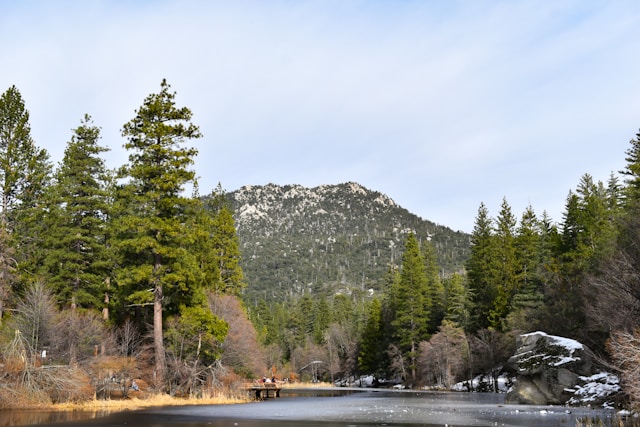Introduction
Lake Arrowhead, California, nestled in the San Bernardino Mountains, is a popular destination for tourists seeking a serene retreat in nature. Known for its picturesque landscapes and recreational activities, Lake Arrowhead has also become a sought-after location for Airbnb and other short-term rental properties. However, as with many tourist-heavy areas, the rise of short-term rentals has prompted local authorities to implement regulations to manage their impact on the community. This blog post delves into the current regulations governing short-term rentals in Lake Arrowhead, CA, providing valuable insights for property owners and investors.
Overview of Short-term Rental Regulations in Lake Arrowhead
Zoning and Permits
In Lake Arrowhead, short-term rentals are subject to specific zoning laws and permit requirements. The San Bernardino County oversees the regulation of short-term rentals in this region. Property owners must obtain a Short-Term Residential Rental Permit (STRRP) before listing their property on platforms like Airbnb. This permit ensures that the property meets safety and health standards set by the county.
Application Process
The application process for a Short-Term Residential Rental Permit involves several steps:
- Submission of Application: Property owners must submit a detailed application form, including information about the property, ownership, and a site plan.
- Inspection: The property undergoes an inspection by county officials to ensure it complies with safety regulations, including fire safety, proper egress, and adequate sanitation facilities.
- Payment of Fees: A non-refundable application fee is required. Additionally, an annual renewal fee must be paid to maintain the permit.
- Approval: Once the application and inspection are completed, and fees are paid, the permit is issued.
Top 100 Airbnb Rental Markets

Instantly compare the top 100 short-term (Airbnb) rental markets in the US
Operational Requirements
Short-term rentals in Lake Arrowhead must adhere to operational requirements designed to minimize their impact on the community. Key requirements include:
- Occupancy Limits: There are strict limits on the number of occupants allowed per rental property. These limits are based on the number of bedrooms and the overall square footage of the property.
- Noise Restrictions: To maintain the tranquility of residential neighborhoods, short-term rentals must comply with noise ordinances. Quiet hours are typically enforced from 10 PM to 7 AM.
- Parking Regulations: Adequate parking must be provided for guests. The number of vehicles allowed is usually limited to prevent congestion on narrow mountain roads.
- Trash Disposal: Proper trash disposal and recycling practices must be followed. Property owners are responsible for ensuring that trash is collected and disposed of according to county guidelines.
Taxation
Like other jurisdictions, Lake Arrowhead requires short-term rental operators to collect and remit Transient Occupancy Tax (TOT). This tax is typically a percentage of the rental income and must be reported and paid to the county on a regular basis. Failure to comply with TOT regulations can result in penalties and fines.
Enforcement and Penalties
San Bernardino County takes the enforcement of short-term rental regulations seriously. Regular inspections and monitoring are conducted to ensure compliance. Penalties for non-compliance can include fines, suspension of permits, and legal action. Common violations that can result in penalties include:
- Operating without a valid permit
- Exceeding occupancy limits
- Violating noise and parking regulations
- Failing to remit TOT
Impact on Property Owners and Investors
The regulations in Lake Arrowhead aim to balance the benefits of short-term rentals with the need to preserve the quality of life for permanent residents. For property owners and investors, understanding and complying with these regulations is crucial. While the permitting process and operational requirements may seem stringent, they are designed to ensure safety, maintain community standards, and promote responsible hosting.
Investors should consider the following when operating a short-term rental in Lake Arrowhead:
- Initial and Ongoing Costs: The cost of obtaining and renewing permits, as well as complying with operational requirements, should be factored into the investment plan.
- Property Management: Effective property management is essential to ensure compliance with regulations and provide a positive experience for guests.
- Community Relations: Building good relationships with neighbors and the local community can help mitigate potential conflicts and enhance the overall reputation of the short-term rental.
Conclusion
Operating an Airbnb or short-term rental in Lake Arrowhead, CA, comes with a set of responsibilities and regulatory requirements. By understanding and adhering to these regulations, property owners can contribute to the sustainability and harmony of this beautiful mountain community. Whether you are a seasoned investor or a new property owner, staying informed about local regulations and maintaining a commitment to responsible hosting will ensure a successful and compliant short-term rental operation.
For more detailed information and to begin the permit application process, property owners can visit the San Bernardino County Short-Term Residential Rentals page.
By following the guidelines and embracing the regulations, you can enjoy the benefits of operating a short-term rental in the scenic and welcoming community of Lake Arrowhead.
Resources Used
- San Bernardino County Short-Term Residential Rental Ordinance
- San Bernardino County Short-Term Rental Permit Application
- San Bernardino County Transient Occupancy Tax Guidelines
- San Bernardino County Code Enforcement
For additional inquiries or support, property owners can contact the San Bernardino County Land Use Services Department directly.


